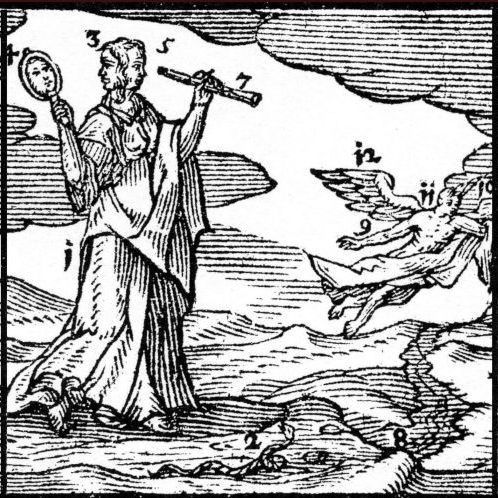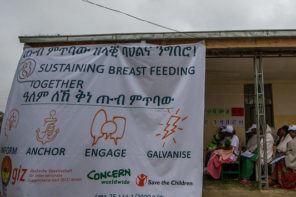An introduction to somewhere less observed
Research on Covid-19 is a hot topic worldwide, and, recently, the Latvian goveernment has also launched its own emergency research programme. We, as a department, planned to apply for funding under this scheme for this rather important topic; also, in this current metricised academic environment that has extended to Eastern Europe, we must either publish or perish. There is a certain irony, more than coincidental in this quasi-flat tax, low-welfare, neoliberal poster child of a country, in that on social issues, the projects should focus on ‘economy and societal welfare solutions, including economic durability against pandemics and epidemics, […] as well as societal behaviour models and psychological durability in crises’. Durability reigns; being weak and vulnerable, or in need of extra support, do not feature in this image of strength and resilience, and successful outcomes.
Durability reigns; being weak and vulnerable, in need of extra support, do not seem to feature in this image of strength and resilience, and successful outcomes.
There is a connection here to the broader question of ‘success’, given that Latvia has been highly praised for its so-far successful response to the pandemic. The UK’s Daily Telegraph, in an article headline feted a country as having ‘led the world against [the] coronavirus pandemic’. This, perhaps surprisingly, is the Eastern European (and Baltic) state of Latvia. The UK’s Guardian asks, we fear somewhat unintentionally condescendingly, ‘Why has eastern Europe suffered less from coronavirus than the west?’. The idea that Eastern Europeans are somewhat less advanced than their Western counterparts is familiar, and expressed well in Kürti and Skalník’s (2009) critique of the anthropology of Eastern Europe: that the work of local anthropologists is marginalised compared to those from the ‘West’.
This is no counteracting patriotic ‘puff piece’ on Latvia, yet we do not wish to pan the swift and measured response amidst an ‘inchoate’ world narrative (Carrithers 2008) either. Latvia has had ‘only’ 1016 cases and ‘only’ 21 deaths as of 20 May, out of a population of approximately 1.9 million people. Hamilton’s native Northern Ireland and Putniņa’s Latvia have similar population figures under two million, but the deaths in Northern Ireland rise daily, similarly to those for new cases in Latvia. On certain days, Latvia counted no new cases at all.
Certain long-term issues in Latvian society are acutely evident in the crisis, and studying these would not be simple under the call for research as issued.
We would not suggest that Latvia is wonderfully exceptional, or exceptionalist, as Hylland Eriksen does for Sweden’s approach; however, the situation is not as successful as it looks – or rather, success, or keeping to government ideas of what should be, or be done, are not as evenly spread as they might be. Certain long-term issues in Latvian society are acutely evident in the crisis, and studying these would not be simple under the call for research as issued.
The current state of affairs
In terms of the theme of success, Latvia made the best of the crisis, its silver lining useful for strengthening its national identity. Becoming visible from outside for its successes represented a very important confirmation that the country existed in international eyes. The chief infection control specialist Uga Dumpis, and defence minister, Artis Pabriks, appearing in a webinar held by the ‘Royal’ British RUSI for sharing Latvian successes worldwide, made Latvian national news. The introductory note on its webpage quotes the minister saying Latvia is in an “elite group of nations”.
So what elevated Latvia into this apparent world pandemic elite? The government instituted a state of emergency on 12 March, extended several times, claiming its policy had been medical research/evidence-based. Public gatherings were initially prohibited; only families or people residing together could gather. This, however, occurred early in the pandemic, before more than a handful of cases and any deaths had occurred.
The emergency did bring surprises in terms of national identity. While the preamble of Latvian constitution states that “the identity of Latvia in the European cultural space has been shaped by Latvian and Liv traditions, Latvian folk wisdom, the Latvian language, universal human and Christian values”, organised religious gatherings were prohibited two days after the declaration of the state of emergency – a week earlier than casinos/gaming halls had to close, after heated parliamentary debate. Churches remained open and the regulation was ambivalent, but leaders of all congregations supported the lockdown. Despite that, some congregations of all denominations continued to meet in person, giving opportunity for vigilant citizens to denounce them. The mayor of the Liepāja was accused of attending a service (at a church apparently for the city elite) at a time when no religious gatherings should have taken place. He claimed he did not actually attend an organised gathering, but had privately prayed for the whole city. After an investigation by police, no breach of the rules was found.
Churches remained open and the regulation was ambivalent, but leaders of all congregations supported the lockdown. Despite that, some congregations of all denominations continued to meet in person, giving opportunity for vigilant citizens to denounce them.
Language, information availability, and buckwheat
When colleagues or friends from abroad ask when shops would reopen here, it is a strange feeling (perhaps with national pride mixed in) to say they always have been, even with some specific restrictions in place. Smaller shops have been given instructions on how many people may enter, with statutory notices to be placed on entrance doors and an offering of hand sanitiser. But such regulations are rarely ‘foolproof’ or innocent. Hamilton witnessed a row in one small shop as an older man inadvertently jumped the checkout queue, who was swiftly admonished by a young woman, calling on fellow shoppers, including Hamilton, for backup.
Such episodes are abstractly interesting but potentially alarming for Hamilton due to Latvia’s linguistic situation. It can appear rude or even nationalistic not to answer back in Russian if spoken to in it, but thankfully the episode above was in Latvian (which he speaks well). As Dzenovska (2018) demonstrates, language politics in the country are particularly complexsuch episodes reveal that national identity is not as all-encompassing as the ‘successes’ suggest. However, the language issue became more severe during the emergency: parliament (Saeima) passed a law stipulating fines for providing information in a ‘foreign’ language (so, including Russian) without someone making a prior request for this. This is Catch-22: if you do not understand Latvian, how would you even know that there was information that would be supplied to you in Russian if you asked? Practically, there is not much time to read notices on rapidly opening/closing shop or post office doors telling you to come in or not depending on the number of patrons inside – or to work out what is being said to you. A person denied information does not feel ‘elite’ in such situations.
This is Catch-22: if you do not understand Latvian, how would you even know that there was information that would be supplied to you in Russian if you asked?
Putniņa noticed that the news of the state of emergency did not spread as efficiently to the Russian minority due to such language issues. The lack of a national Russian media space has been a problematic, and much discussed, issue for a significant period. While the younger ethnic Russian(-speaking) population does consult Latvian language media for information, the older generation has relied upon Russia-based channels. This problem became obvious in the first days of the state of emergency. While large supermarkets in Riga neighbourhood centres were busy and their shelves emptied already by the eve of the state of emergency, Putniņa observed that smaller local food shop shelves in predominantly Russian-speaking areas of Riga remained largely well-stocked. She sent her (well trained!) adolescent children to observe three supermarkets around her predominantly Russian-speaking area. They reported no crowds in the shops and only potato crisps were depleted, perhaps indicating the effect of official, personalised messages received by pupils that schools were to close the next day. On the first day of the state of emergency, despite the prohibition on gathering, Putniņa saw a large group of elderly Russian women outside their apartment buildings trying to make sense of the situation. No information had been posted in the neighbourhood, on the assumption that everybody made use of national media. Two weeks later, the shelves of buckwheat (a beloved staple here, and particularly in Russia) had finally been emptied in smaller supermarkets, suggesting that the information had gotten through.
On the first day of the state of emergency, despite the prohibition on gathering, Putniņa saw a large group of elderly Russian women outside their apartment buildings trying to make sense of the situation.

Buckwheat (griķi) shelves still reduced in choice in a large supermarket in a predominately Russian-speaking part of Riga, in late May. The supermarket’s own-brand products are not available.
‘National’ celebrations, ethnic blame
Despite reports that all ethnic groups residing in Latvia were equally well-addressed by news dissemination, events during the emergency paint a different picture. 4 May is a public holiday commemorating the re-establishment of independence, from the USSR. As restrictions on assembly were in force, people joined in a virtual national costumed march, effectively celebrating at home. Then came 9 May, ‘Victory Day’, on which the Russian population celebrates the end of WW2. Usually, a large crowd gathers at Riga’s Victory Monument and national security institutions use the magnitude of the crowd to estimate the current security threat posed by Latvia’s eastern neighbour. Despite the prohibitions, 20,000-25,000 people came, causing public outrage: even if a lack of information might have been the issue, claiming the police had adopted double standards. Even questions of confidence in government policy is ethnicised: the latest ratings on trust towards public figures/institutions show ethnic division in naming public figures they trusted: 30.6% of Latvians but only 5.2% of Russian-speaking respondents trusted Dumpis’ (who is Latvian) pandemic management.
Testing times
Hamilton returned to Latvia before the state of emergency, from a London conference (see EASA2020 Laboratory L01). Being a teacher in a university, and passing via Germany, he was supposed to self-isolate but discovered this only due to a friend, a doctor. This friend noticed on the website of SPKC, the national disease prevention body, information appeared initially only in Latvian. Indeed, only one page in English is given on its site in general on Covid-19, and the Latvian state media website LSM’s English boilerplate text on all Covid-19 articles sends information seekers to a missing page there. While the Latvian government is usually good at providing information, this lack of accessible information is concerning as international and Erasmus students have little knowledge of Latvian on arrival. During the period of self-quarantine, Hamilton started to show symptoms and easily got tested at his apartment. This was medically fine, an interesting experience, but questions of both national and language identity arose.
On initial form-filling by the tester (in a hazmat suit), the issue arose of who was going to pay. Medical care should be provided for EU permanent residents as for citizens, with, here, a free test. Somewhat surreally, this unfortunate medic-turned-‘street-level bureaucrat’ had to be explained EU residence rules, half in English and half in Latvian, in this quite stressful situation. Latvian ID cards for EU citizens resemble those for Latvians, and the fear of a potential fine for ticking the wrong box added to the confusion. That a medical examination becomes a test of nationality (and language) adds to the stress; but at least the result was negative.
Beyond the above
There are issues beyond ethnic and linguistic divisions influencing the impact of the emergency on the population. A focus on those who are not in the elite (or even middle class of society) was missing at the start of the pandemic. Emergency policies focused on the image of responsible, individual, independent and adult citizens, representing the middle class only, who would continue their productive work online. It became apparent that not all schoolchildren had equipment for home-schooling. One school had to home deliver books. Families with multiple children suffered as lump-sum payments first ignored the actual number of dependents. Tensions within families increased, with Riga city police reporting an increase in domestic violence within two weeks.
Two Riga homeless shelters became nexuses of infection and death.
Diversity was no concern at all.
These negative aspects, however, were not perceived as intrinsic features of the national fabric, and that posed a problem for anthropologists trying to go beyond the success stories and reaching out to the dispossessed and weak. Diversity was no concern at all. As nice as it might be to be regarded as a country doing well in the pandemic, and such an emblematic focus on the strong in the national research programme, as anthropologists, we would have liked to have aimed to apply for funding, but the feeling exists that those topics that anthropologists study best – including the marginal, weak and vulnerable – may not win too many points. (And thus, only a few members of the department even submitted their applications, and most were rejected.)











